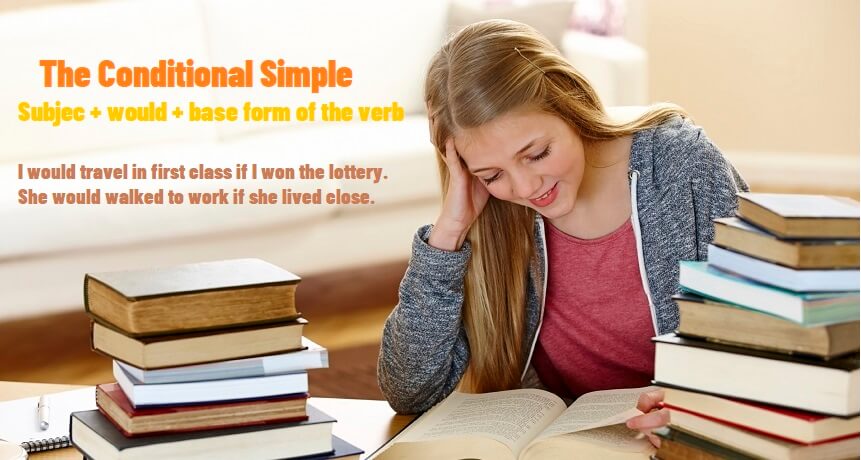The Conditional Simple Tense, also known as the Conditional Present, describes hypothetical or imaginary conditions in the present or future. It often implies that an action is dependent on a particular condition being met. In English, the conditional simple tense is formed using the modal verb "would" (for all subjects) combined with the base form of the main verb. The verb "would" can be replaced with could, should, or might but it does change the meaning.
The general structure of the conditional simple tense is as follows:-
There are some examples to explain how it works:
Positive Statements:
If I had more time, I would read a new book on technology.
She would travel the world if she had money.
They would study harder if the exams were difficult.
Negative Statements:
If it didn't get cold, she would go to the beach.
He wouldn't work late if he felt tired.
I wouldn't eat junk food if it were unhealthy.
Questions:
Would you come to the school if it rained?
Would she join the club if they accepted her application?
Wouldn't they be happy if they won the competition?
The Conditional Simple Tense is used for hypothetical or unreal conditions. The "if" clause usually sets up the condition, and the main clause expresses the result or consequences. Here is a breakdown of the examples:
Positive Statements:
If I had more time (conditional), I would read a new book on technology (result).
Meaning:
The speaker doesn't have enough time now. so they are imagining what they would do if they had more time.
She would travel the world (condition) if she had more money (result).
Meaning:
The individual doesn't have enough money currently, so they are imagining what they would do if they had more money.
They would study harder (result) if the exams were difficult (condition).
Meaning:
The exams are not difficult at the moment, but if they were, the students would study harder.
Negative Statements:
If it didn't get cold (condition), she would go to the beach (result).
Meaning:
It is currently cold, but if the weather got hot, she would go to the beach.
He wouldn't work late (result) if he felt tired (condition).
Meaning:
The person is not feeling tired now, but if he was tired, he wouldn't work late.
I wouldn't eat junk food (result) if it were unhealthy (condition).
Meaning:
The food being discussed is probably unhealthy, but if it were even more unhealthy, the speaker wouldn't eat it.
Questions:
Would you come to the school (result) if it rained (condition)?
Meaning:
The speaker is asking if the listener would attend the school if it didn't rain.
Would she join the club (result) if they accepted her application (condition)?
Meaning:
The speaker is wondering if the person would become a member of the club if her application got accepted.
Wouldn't they be happy (result) if they won the competition (condition)?
Meaning:
The speaker is assuming that winning the competition would make the people happy.
Remember that the conditional simple tense is used for unreal or hypothetical conditions, and the "if" clause introduces the conditions that must be met for the main clause to happen.

